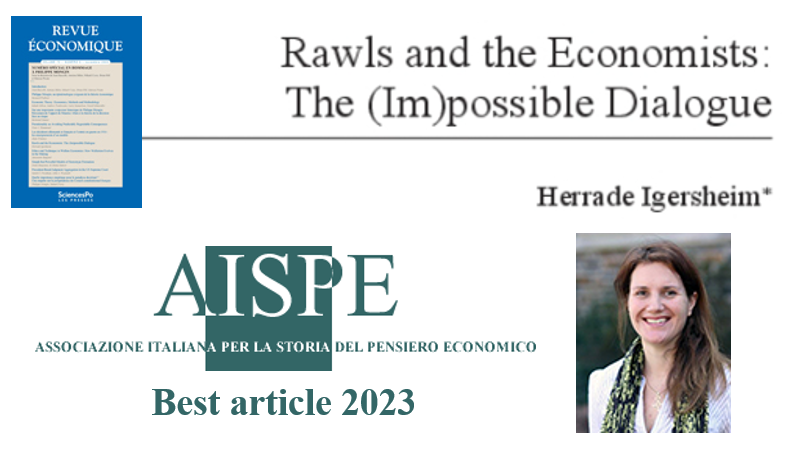Herrade Igersheim: AISPE Best Article Prize 2023
10 November 2023

The Italian Association for the History of Economic Thought (AISPE) awarded its 2023 best article prize to Herrade Igersheim , CNRS research director and researcher at BETA, for her article “Rawls and the economists: The (im)possible dialogue” , published in the special issue of the Revue économique (November 2022), in memory of Philippe Mongin (1950-2020).
Abstract:
Although falling within the scope of political and moral philosophy, it is well known that A Theory of Justice has also had a great impact on economists. As such, Rawls put great emphasis on his desire to combine economics and philosophy, and particularly to deal with rational choice theory, notably claiming that “the theory of justice is a part, perhaps the most significant part, of the theory of rational choice ” (Rawls [1971]). After the publication of A Theory of Justice , aspects of it came in for criticism—often very vehement—by economists such as Arrow [1973], Musgrave [1974], Harsanyi [1975] and later by Sen [1980]. Rawls’s immediate an swers ([1974a], [1974b] in particular) showed that he first wanted to maintain a dialogue with the economists, but the later evolutions of his works ([1993], [2001]) clearly demonstrated that he had removed himself from the economic realm, re turning to his initial philosophical territory in order to overcome the internal inconsistencies of A Theory of Justice . In this paper, by focusing extensively on the letter exchanges between Rawls and the economists before and after the publication of A Theory of Justice , I attempt to shed light on other (complementary) elements which can explain Rawls’s retreat from the realm of economics, and his progressive disenchantment regarding the possibility of a dialogue on equal footing between economists and philosophers.






